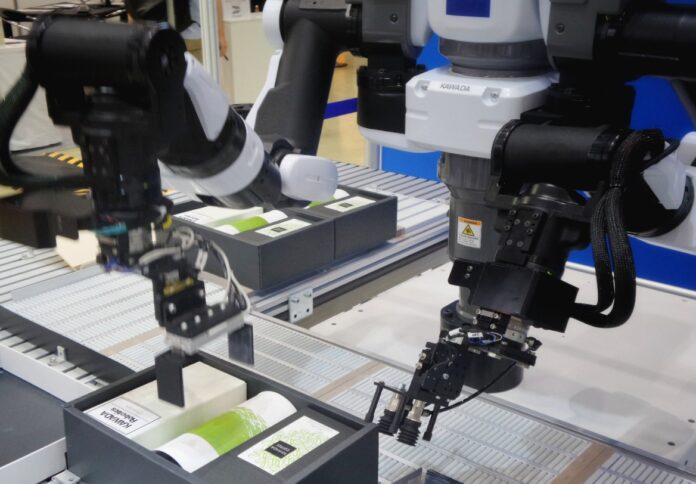
Increased adoption of robotic technologies could be what is needed to compete on a global basis and improve Australia’s sovereign capabilities, which will be a significant topic of discussion at the September Modern Manufacturing Expo, according to Marie Kinsella, CEO of the International Exhibition & Conference (IEC) Group.
In the findings of the Robotics Roadmap for Australia, the nation is claimed to have a special need for robots to operate as a ‘force multiplier,’ enhancing and expanding skilled human capabilities while decreasing human exposure to dirty, dull, and dangerous operations.
“Robotics represents the peak of new technologies and is hugely valued by manufacturers for its ability to incorporate both automation and Artificial Intelligence,” noted Kinsella.
In particular, the roadmap outlined five-year goals, including the training of local suppliers in “skill multiplying” cobotics or robotics, so that they can effectively allocate human, robotic, or shared operations in task completion.
The enhancement of automation simulation capabilities (for both humans and machines) is also one of the ambitions in the roadmap, enabling the use of synthetic data to guarantee successful and long-lasting process improvement.
Other key targets are the development of more capable cobots as well as the design and prototype of a $2,000 “skill-multiplying” robot through modern sustainable technologies.
“It is clear that intelligent robotic systems which can easily and rapidly adapt to new product lines based on demands and real-time needs, are key to removing Australia’s reliance on global supply chains and overcoming our skilled labour shortage,” said the IEC Group CEO.
Meanwhile, the roadmap noted that, in addition to Australia not producing its own industrial robots, the number of installed industrial robots has actually decreased since 2014 by 14 per cent.
This figure is opposed to a worldwide increase of 60 per cent, and as a result, Australia’s position in the world for robot density in the industrial sector has dropped from 18th to 35th (out of 37).
The lack of adoption by SMEs, who believe that large-scale automation solutions are either unsuited for their operations or too expensive, is another issue resulting in a low robot population density.
“This trend is not limited to robotics, as we have heard time and time again that while small manufacturers are enthusiastic about the potential of Industry 4.0 technologies, they simply cannot afford the upfront investment,” stated Kinsella.
The Modern Manufacturing Expo recently announced its return, which will be held from 20 to 21 September at Sydney Showground, Sydney Olympic Park.
The two-day will exhibit the most recent manufacturing techniques and technology required to power up operations and accelerate the introduction of new concepts and products to the market.
“We look forward to the thought-provoking discussions and innovative solutions that will be showcased at the 2023 Modern Manufacturing Expo through our exciting partnership with Robotics Australia Group,” Kinsella concluded.



















